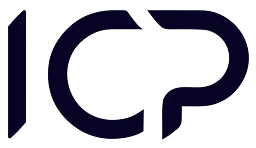Remote project teams – how to manage projects effectively?
Remote project teams are an increasingly common phenomenon in project management.

Tell our team about your needs and we will customize the tool as part of your chosen package!
Remote project teams are an increasingly common phenomenon in project management. And it’s no surprise, as the dynamic business environment now often assumes remote or hybrid work, which has become extremely popular. Many employees seek remote-only jobs, allowing them to work from anywhere in the world for any organization. On the other hand, this also provides companies with much broader opportunities to attract talent, as the critical factor of location simply doesn’t exist.In this article, we will delve into the topic of remote project teams. We will address key aspects of managing such teams, analyze trends, and present practical solutions to ensure that remote project work is as effective as possible. Remember, there are always two sides to every coin. So, what does it look like in remote project teams? How can we manage projects effectively with such teams?
What is a remote project team?
Let's start by defining the concept of teams. A team is a group of individuals with a common goal and complementary skills. A remote project team, on the other hand, is a group working in a dispersed manner, often communicating virtually. The differences include geographical dispersion, digital communication, and potential cultural differences. Nowadays, many people work in remote teams, and often these are also hybrid teams, combining employees who work in the office daily with those who work from their home or another location. Every remote project team presents new challenges on many levels: from communication, work environment, cultural diversification, and time management, to elements of motivation and control.
Trends in remote project teams
Following the latest trends, let's refer to reports that highlight the current market situation regarding remote and hybrid work.According to the Jobs Report: Opportunity Amid Recovery; 2021 Talent Gap Report:
- 52% of organizations in Europe are implementing policies to return to offices.
- 57% of organizations believe that remote work increases job satisfaction.
- 25 million project management specialists will be needed by 2030.
Referring to the Ten-Year Employment Trends, costs, and global implications report, it highlights the essential future skills in the job market:
- Relationship building
- Team leadership
- Strategic thinking
- Creative problem solving
- Commercial awareness
In light of the evolving project work market, the ability to build strong relationships, lead teams, think strategically, solve problems creatively, and possess commercial awareness are becoming crucial competencies. The market increasingly values soft skills, focusing on the ability to manage teams effectively, think strategically, and approach problem-solving creatively, which translates to project success. Modern employees must possess these skills to meet the dynamic challenges and demands of contemporary business. This is the clear direction of the business world and the job market. Whether remote work will continue to be as popular as it is now remains to be seen. Time will tell.
What challenges do remote project teams generate?
The greatest difficulty associated with managing a dispersed team is the distance itself. Dispersed teams work just like traditional task teams, except that they have more limited contact, often only virtual or sporadic. This distance impacts everything else, making various aspects more challenging, especially in the context of managing a remote team.

Common challenges and difficulties generated by remote project teams include:
- Team divisions - the natural formation of “subgroups” and less employee integration.
- Reduced sense of belonging - employees working outside the organization’s headquarters may feel less connected to the company.
- Task distribution and flow - difficulty in dividing and managing the flow of tasks.
- Misunderstandings and miscommunication - errors in perception and a frequent lack of insight into others’ emotions due to remote work.
- Performance assessment - challenges in adequately evaluating work, as managers cannot observe employees in their daily, standard working conditions.
- Cultural or national differences - differences in cultural or national backgrounds of employees (check how to manage projects effectively in an international environment).
Could we add anything else to the above list? Undoubtedly. Every remote project team is demanding, and diverse challenges can arise at every turn.
Communication in a remote project team
In project management, emotions, communication, and the exchange of information within project teams are crucial. When comparing the barriers in remote teams to traditional ones, team communication immediately stands out as a significant challenge. This is undoubtedly one of the most important aspects that must be properly organized and monitored to ensure that a remote project team is as effective as we expect.Proper management of work and communication will be the most crucial element ensuring the team works effectively together, with no misunderstandings, and all information flows between team members without any communication blocks. So, how can we ensure effective communication in a remote team?
- Appropriate communication tools - use a communication tool that is common for the entire team. Creating dedicated thematic threads and tailoring them to the project’s subject matter will be an optimal solution to keep communication organized and well-structured.
- Work model based on regular meetings - implement a work model that includes regular meetings to discuss the most important project issues. This allows the team to stay updated on the team's work, potential problems, and challenges. It's very important for every project member to participate and have the time to express their opinions. Efficient meeting management is crucial to ensure the meeting is effective and purposeful, rather than just casual team chat.
- Open communication as the key to success - clear, transparent feedback and open communication without hidden agendas are vital, especially in remote project teams. In verbal communication, we do not see gestures or certain behaviors, so we rely solely on open feedback and communication, making it extremely important.
The role of tools in remote project teams
Tools play a crucial role in the efficient project work of remote teams. Many companies and teams can't imagine functioning without communication tools and, most importantly, a project management software that aggregates all data. This collaborative work environment not only supports communication but also ensures all essential aspects of our daily work are covered. It helps build project documentation from our work, keeps us informed about the team's activities, who is working on what, and how they are performing in real-time. For remote project teams, specialized project management programs are invaluable as they provide a common platform for the entire team's work.
What to consider in the world of tools?
- Project management software (e.g., IC Project)
- Common communication tool (e.g., Discord, Zoom, Meet, Teams)
- Project documentation (e.g., Google Drive, One Drive, Dropbox)
- Shared idea board (e.g., Miro, Mural)
Remember, in the dynamic business world, tools are the key elements of the entire team's work. The better selected and implemented tools are for daily work, the more efficiently the team can work, and the more managers will know about the daily operations within the organization. Pay special attention to selecting the perfect tools.
Leadership in remote project teams – why is it so important?
Work culture is incredibly important for every remote project team. A conscious team can often work regularly on organizational culture, but there must always be a person in charge, the leader ofthe entire team. Keeping everything under control, making key decisions, overseeing work, and managing workflows are crucial tasks for every project manager in a remote project team.

Do self-managing teams exist? Perhaps, but they make up a very small percentage of the whole. In many cases, there must be someone who has decision-making authority and uses it at critical moments. Beyond aspects of control and work verification, simply supervising and managing work are extremely important elements of effective teamwork.A simple example: every remote meeting can sometimes last for hours... How often do we stray from the main topic, talk around it, and the meeting lacks direction and conclusions? The role of the manager in this example is to moderate the meeting according to the agenda, oversee its duration, and document certain assumptions and agreements.Leadership in remote project teams impacts:
- Setting and verifying goals
- Maintaining continuous communication and organizational culture
- Time and resource management
- Work planning and task delegation
- Motivating and inspiring...
Motivating and inspiring – especially important for leaders of remote project teams
When a team works remotely and is dispersed, direct contact is very limited. We don't see each other physically every day, we aren't aware of potential problems, and without proper attention, we can easily drift away from certain team members. Therefore, it is crucial for the leader of such a team to motivate and inspire. In a remote setting, we don't see people or their work, only the results through appropriate tools. We must be particularly attentive to catch any issues or moods because it all impacts the team.
How should a leader motivate and inspire their remote team?
- Positive atmosphere – the key to success. Every remote meeting should be enjoyable and something everyone looks forward to with a smile.
Example: Before each meeting, spend 5 minutes having everyone respond with an emoji summarizing their day or week. Take a moment to laugh and talk about non-work-related topics.
- Team integration – It can be done remotely and effectively. Use team-building activities to integrate the team. The more we know about each other, the more trust we build.
Example: meet remotely on Fridays at 2 PM, finish work early, and chat about casual topics, have fun, organize quizzes, and laugh together about our experiences.Encouraging Open Communication – especially important in remote teams. Since we can't sense context or behavior in most cases, clear and transparent feedback is essential. Learning to give constructive feedback should be a tradition, and it is the leader's role to teach this.Example: Solicit feedback, ask for opinions, and even request feedback during negative moments to show general acceptance of open communication.Remote project teams are becoming an integral part of project management. The key element is understanding the challenges and focusing on practical solutions. Establishing processes, communication rules, and the right tools is crucial for the success of remote projects. Will remote project teams continue to grow in strength? Many indicators suggest so, which would mean that managing remote project teams will play a crucial role in the dynamic business environment, particularly focused on project management.
Also read

How to create an effective project plan?
A project plan is a key element of every successful project. Without a proper plan, projects can become chaotic and difficult to manage.
Try IC Project in your company Our team is ready to help!

Create a free account and test with no obligation




